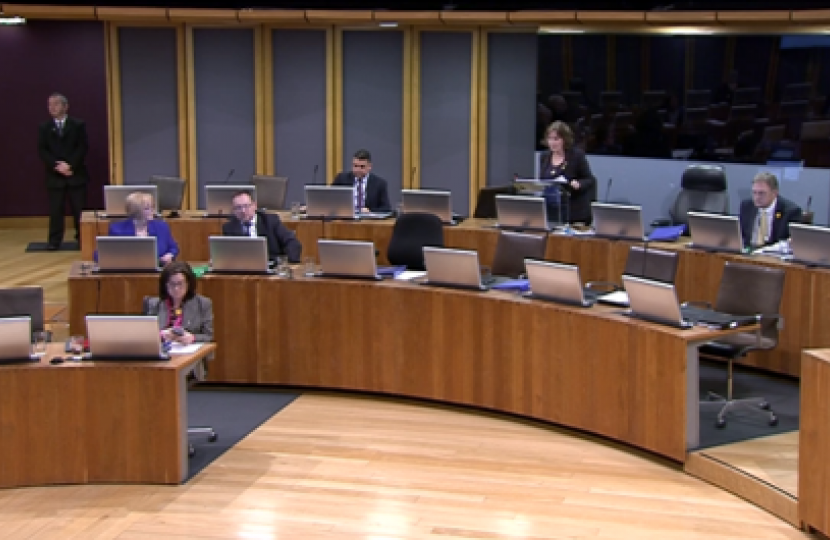
Janet:
As the older people’s commissioner noted in her 'State of the Nation' report:
'The increasing use of digital technology means that the way we access services and information, and the way we communicate, has changed significantly in recent years.'
However, not everyone has access to the internet. Superfast availability is 77 per cent in rural areas. Around 87 per cent of businesses in Wales have access to superfast broadband, and yet only 93 per cent of all premises in Wales can access superfast broadband, compared to a UK average of 95 per cent. Ofcom estimates that the number of premises currently without access to superfast broadband in Wales is around 156,000. Bearing that figure in mind and the fact that BT Openreach are only planning to provide 26,000 premises with access to fast, reliable broadband by March 2021, it is clear that many, including my constituents in the Crafnant valley, will continue to be bogged down by lack of access to reliable internet. Equally problematic is the fact that internet usage remains very low amongst our older generations. A third of older people do not make personal use of the internet. The figure is even higher for those aged over 75—that's 60 per cent.
I acknowledge that the Welsh Government has taken steps to try and address the problem of digital inclusion. For example, the digital inclusion strategic framework and delivery plan of March 2016 set out a goal for reducing digital exclusion for adults aged 16 and over, so that more people could benefit from being online and using digital technologies. However, according to the digital inclusion progress report and forward look 2018, only 77 per cent of social housing residents have internet access, just 51 per cent of single pensioner households are likely to have internet access, and 25 per cent of disabled people are digitally excluded.
I am pleased that the report highlights the need to work with all sectors to tackle digital exclusion. It does recognise that telecommunications companies such as EE, Three, O2, BT and Virgin, and utility companies such as British Gas, Welsh Water, and E.ON, financial services such as Natwest, Lloyds, Principality, Santander and Barclays, and insurance companies such as Aviva, Admiral and Endsleigh—there's a bit of a namecheck going on there—are increasingly looking to customers to manage their accounts online. A promise, however, was made to encourage the private sector to try and lead by example and to consider their digitally-excluded customers. So, I would appreciate an update on what progress has been made through ministerial and deputy ministerial interventions on this issue to date.
I believe that the aim should be amended so to include the need to discuss with banks, businesses and other organisations the need to ensure that alternatives to online services are offered. In fact, this could be supported by adding it as a seventh pledge to the digital inclusion charter. None of us can ignore the fact that alternatives to online services are needed. The older people's commissioner found that offline households miss out on savings of up to £560 a year from shopping and paying bills online. That being the case, being offline is costing our constituents a fortune. According to the national survey for Wales, only 79 per cent of people buy goods or services online. We must act to ensure that services remain as affordable and accessible offline too.
Our colleague Rhun ap Iorwerth has highlighted the example of the bus pass renewal system. I would like to add to the list by including blue badge application forms. I have had many constituents unable to even access these without going online or using a computer, and they come into my office for us to help, but they should have that facility to be able to have that blue badge without having to go to those extremes.
Undoubtedly, we need to help more people get online and do more to boost superfast availability. But we want a fair Wales too, so I strongly support this motion today and thank Rhun for starting this off in the first place. And I implore the Welsh Government to take steps such as have been suggested here today to ensure that, whilst keeping up with the digital age of technology, we will always ensure that traditional ways of accessing information, advice, support and services remain in place. Thanks.

